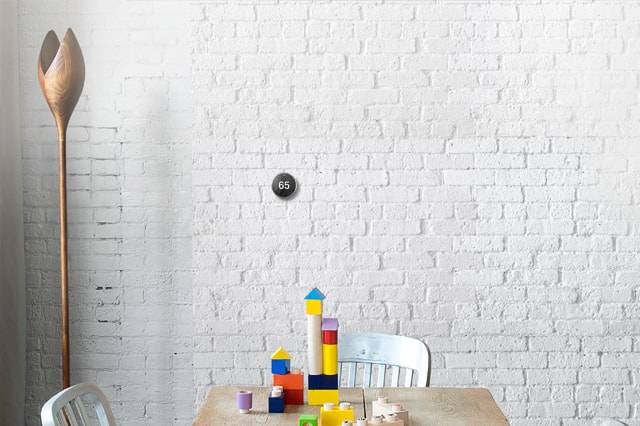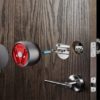According to a study done early this year by the research experts at Strategy Analytics, 21% of households in the United States are already taking full advantage of smart home technology. Additionally, about 36% more will soon be buying a wide range of home automation products in the market. These numbers are expected to continue growing as we draw closer towards the end of this decade.
However, is a smart home for you? Let’s take a closer look.
What is home automation and how does it work?
The main concept of a smart home is centered on home automation, interoperability, and machines that can think on their own to make a living space more comfortable for its owners. This is achieved by advanced sensors and connecting various devices via the internet.
In the past, we have been using remote controls to operate our TV, air-conditioning unit, or the garage. So what is the difference this time? Well, before, gadgets in the house work separately. This time around, our machines (A/C, washing machine, computer, security system, home theater system, etc.) can be set up to communicate with one another for a smarter, more efficient, and more comfortable living space.
Such gadgets are often equipped with sensing and networking capabilities. They can also be operated remotely, oftentimes through a smartphone app. Even advanced systems can be put in place to calculate important matters, such as energy consumption, so that efficiency is maximized while electricity costs are lessened. Expect, as well, to find newer and better smart home tech in the market in the coming years.
How can smart home tech benefit homeowners?
There are numerous benefits to having intelligent household gadgets. All of which you can enjoy as soon as you start equipping your home with such machines.
You can save money
The initial investment in smart home devices can be higher compared to simply buying regular home appliances. However, as the months go by, you will definitely start to see a lot of savings. With the right system in place, lights can be turned off automatically when not in use, and temperature can be controlled in rooms via learning thermostats.
Water heaters can be set up to not waste power. Machines can be interconnected to determine your home’s unique energy profile, and adjustments can be made to make everything run in an energy-efficient way. Through this, those electricity and water bills will go down, minimizing the dent they make on your monthly budget.
You will enjoy more convenience and save time
Too busy with family or career-related plans and have no time to clean your floors? Save time with the help of an intelligent vacuum cleaner. Want to perk up your morning with a hot, fresh brew? Control your Wi-Fi coffee maker from your phone, while still in bed, to make you coffee. If you are in a rush, you can enjoy these conveniences and more once you have a smart home.
Boost exterior security and overall household safety
Security is one of the sections in the home automation market that is truly flourishing these days. CCTV cameras, alarm systems, computers, and smartphones can all be connected to increase household protection. There are also sensors that can be installed in the house to monitor dangerous situations, such as gas or carbon monoxide leaks. With high-tech gadgets on your side,, there will be improved prevention against fire, burglaries, and accidents.
Receive assistance for health-related concerns
Living with an illness, caring for an elderly, or taking care of a family member can be really hard. With a smart home, you can provide yourself and your loved ones better living conditions and an improved lifestyle. Assisted living systems can be put in place to ease the burden brought on by memory, eyesight, hearing, or physical limitations.
These practical machines provide assistance in so many ways and will definitely provide a higher quality of living.
Smart devices you can have in your home
There is a whole range of smart home tech that you can take advantage of. Popular brands, such as Apple, Google, Samsung, and Microsoft have also released their own products in recent years and will continue to do so in the foreseeable future.
Nest Labs, for example, which is owned by Alphabet Inc. (Google), has released the Nest Learning Thermostat along with other smoke detectors, carbon monoxide sensors, and security systems over the years. Samsung and Apple also have a wide array of monitors to make checking up on your home super easy anywhere, with the help of your smartphone. Even AT&T and Comcast have a smart home department too.
With the increasing demand and big tech companies rising up to the challenge, this can only mean that gadgets will continue to evolve and become smarter at meeting your household needs.
How easy are these gadgets to install and is DIY possible?
Since technology these days is becoming more intuitive, installing smart home devices isn’t hard at all. They are built to be put in place in a few hours or less. Numerous YouTube videos and online guides also exist to provide assistance. Even the non-tech savvy can DIY after careful research. Of course, if you don’t have the time to install things yourself, you can always call on knowledgeable professionals to do the legwork for you.
Are they expensive?
As mentioned above, overall initial costs can be higher than buying regular home appliances. Still, with all the new products coming into the market, prices have considerably gone down compared to a few years back.
Nest Labs products range from $100 to $300. Apple has a smart lock worth $230 and a carbon monoxide alarm for $120. Other home automation products fall within the $100 to $500 bracket. Larger systems involving more gadgets and features can go higher. But if you look around, you are bound to find something that will give you excellent value for your money.
In just a few months, you can reap the returns on your investments: lowered electricity bills, increased property protection, and a more convenient lifestyle.
Are you ready for a smart home?
If all of the benefits discussed above sound great to you, then give smart home devices a try. Perhaps you can start out with a learning thermostat or an improved security system, then build up your home automation from there.
These intelligent gadgets will continue getting better over the years as their manufacturers become more adept at solving homeowners’ concerns. No matter where you live and what your lifestyle is, the smart home market holds plenty of potential and you can enjoy all of its benefits at a touch of a button!


